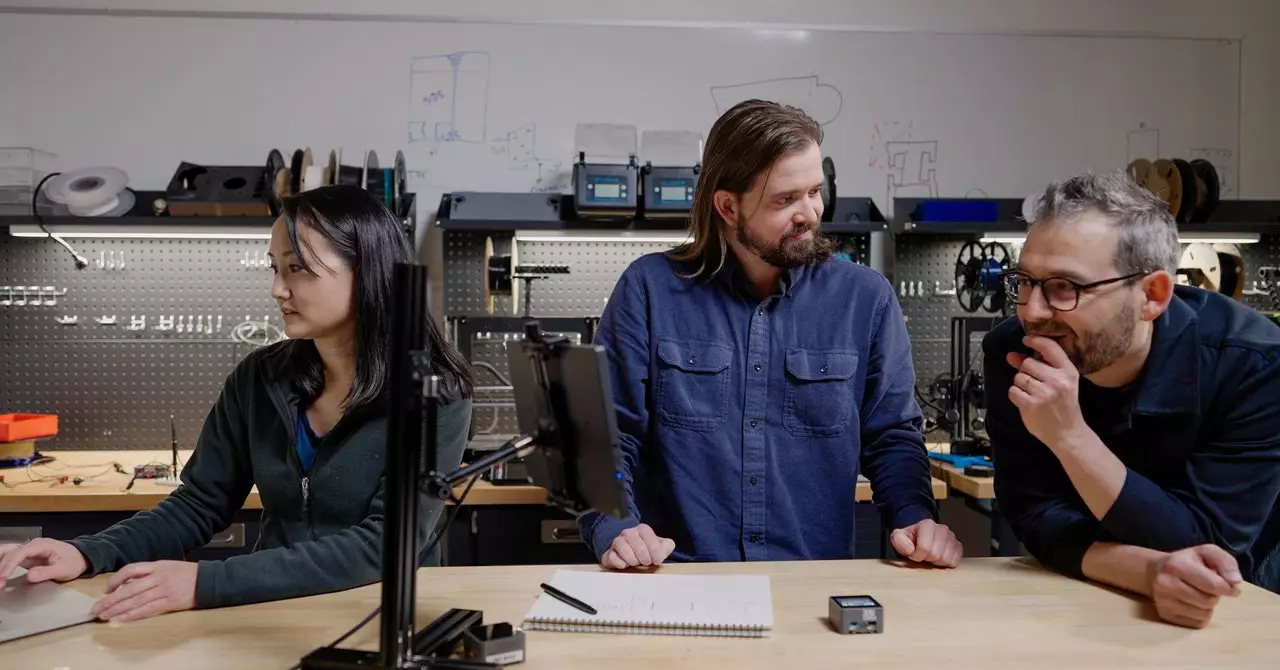The world we live in is becoming increasingly complex and fast-moving. According to Brandon Barbello, the COO of Archetype, the physical world poses significant challenges due to its intricacies that are often beyond our full comprehension. Sensor data, which is commonly utilized to navigate these complexities, can be notoriously difficult to interpret. However, Brandon is optimistic about the potential of using artificial intelligence (AI) to make sense of this sensor data. By leveraging AI, we can gain a deeper understanding of the problems we face in the physical world and work towards effective solutions.
Archetype, a startup comprising a team of five individuals, is at the forefront of harnessing AI for interpreting sensor data. Their innovative approach was demonstrated through various interactive demos during a visit. One such demo involved placing a motion sensor inside a box and tasking Newton, their AI model, to monitor the box as if it were an Amazon package with fragile contents. When the box was dropped, the model indicated that the package might have been damaged. This simple scenario highlights the potential applications of sensor data interpretation, such as monitoring temperature, motion, and GPS sensors for shipments, ensuring the safe delivery of critical cargo like vaccines.
Newton’s capabilities extend beyond monitoring packages; it can be deployed in various settings, from homes to factories. By integrating Newton into these environments, users can receive real-time updates and insights in plain language, eliminating the need for complex dashboards or custom software. For instance, Newton can provide updates on what is happening in a factory without the user having to monitor each sensor individually. This seamless and intuitive approach to data interpretation has garnered interest from tech giants like Amazon, who see the potential for optimizing their logistics operations using Archetype’s technology.
Apart from logistics, Archetype is making headway in the healthcare sector. Collaborating with professionals like Stefano Bini from UC San Francisco, they aim to leverage sensor data to monitor recovery progress post-surgery. By aggregating data from multiple sensors, Newton could potentially provide a comprehensive metric to gauge the effectiveness of healthcare interventions. Similarly, automotive manufacturers like Volkswagen are exploring the use of sensor data for innovative applications, such as predicting a car owner’s return and providing personalized assistance based on movement analysis. These developments indicate the diverse range of industries that can benefit from AI-driven sensor data interpretation.
While the potential benefits of AI in sensor data interpretation are vast, there are also ethical considerations to ponder. The prospect of a vast network of sensors providing real-time insights into any location raises concerns about privacy and surveillance. Poupyrev and Barbello acknowledge the potential dystopian implications of such a monitoring system but emphasize their commitment to prioritizing privacy. By focusing on radar and other non-invasive sensor data, Archetype aims to address specific problems without compromising individual privacy. Volkswagen echoes this sentiment, emphasizing that behavior, rather than identity, is the primary focus when using sensor data for analysis. However, the unique characteristics captured by sensors, such as gait patterns, raise questions about the fine line between behavior detection and personal identification.
The use of AI in sensor data interpretation holds immense promise for revolutionizing various industries and addressing complex challenges. While balancing innovation with ethical considerations remains a crucial aspect of its implementation, the potential benefits for society are undeniable. As we navigate this rapidly evolving landscape of sensor technology and AI, it is essential to tread carefully and ensure that our advancements align with ethical principles and respect individual privacy.


Leave a Reply